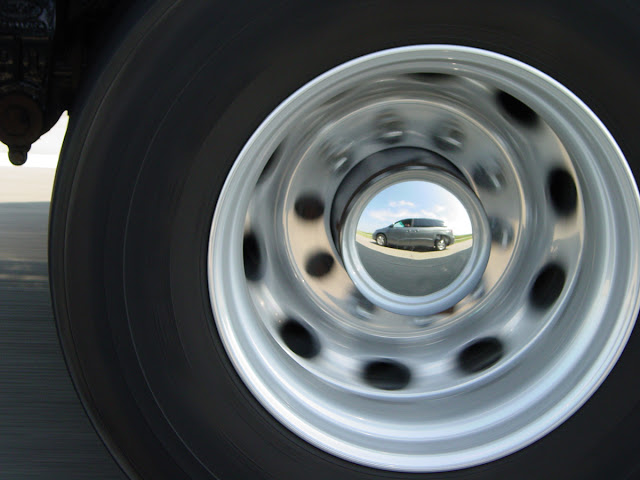It's been two years since we moved and had to deal with this:
The truck left on a Monday and we left a day later in what seemed like a race to the finish line in Louisville, Colorado. The truck driver was in a rush to deliver because he wanted to beat a storm in the Rockies as he drove into Utah. He reached Denver as we drove into the driveway of our new home and he would have delivered that night if we had let him. He got back at us by showing up at 7:30 am the next morning, an hour earlier than the appointed time of 8:30 am.
Within a week we were hit with a deep winter freeze with record temperatures of 6 and 7 below. Our friends in New Lenox laughed at us because weather had been one of the criteria in selecting the Boulder area. It snows and it gets cold but the sun always comes out and warms everything up making winters seem much milder. Winter blues were the norm in Chicagoland where we didn't see the sun for what seemed like eternity.
But we haven't seen much snow this fall and even though the mountains have received a fair amount, it's less than last year's precipitation. Last year, most of the ski trails were open by the 10th of November. Not so, this year.
Is it global warming? Is it human activity? Increasing dust storms now pose a threat to the snowpack. This in turn threatens the fresh waters of the Colorado River, upon which 30 million people depend.
According to a report in NYT, our future could be drying up. While this is distressing, it's a good thing that this type of reporting is actually happening as it results in more awareness of what looms ahead.
Even though the US uses less water than it did 25 years ago, we need to do more. We need to start reusing and recycling water, something they do at Burning Man every year. In the state of Colorado, this is not simple because of the way in which water rights are structured (first in time, first in right). Perhaps it's time to start installing low-flow home appliances or converting our appliances to use less water. We could reduce the amount of potable water that goes straight down the drain by using several of the methods outlined in this article. We could each start with small baby steps and work towards a larger and greater goal.
The truck left on a Monday and we left a day later in what seemed like a race to the finish line in Louisville, Colorado. The truck driver was in a rush to deliver because he wanted to beat a storm in the Rockies as he drove into Utah. He reached Denver as we drove into the driveway of our new home and he would have delivered that night if we had let him. He got back at us by showing up at 7:30 am the next morning, an hour earlier than the appointed time of 8:30 am.
Within a week we were hit with a deep winter freeze with record temperatures of 6 and 7 below. Our friends in New Lenox laughed at us because weather had been one of the criteria in selecting the Boulder area. It snows and it gets cold but the sun always comes out and warms everything up making winters seem much milder. Winter blues were the norm in Chicagoland where we didn't see the sun for what seemed like eternity.
But we haven't seen much snow this fall and even though the mountains have received a fair amount, it's less than last year's precipitation. Last year, most of the ski trails were open by the 10th of November. Not so, this year.
Is it global warming? Is it human activity? Increasing dust storms now pose a threat to the snowpack. This in turn threatens the fresh waters of the Colorado River, upon which 30 million people depend.
According to a report in NYT, our future could be drying up. While this is distressing, it's a good thing that this type of reporting is actually happening as it results in more awareness of what looms ahead.
Even though the US uses less water than it did 25 years ago, we need to do more. We need to start reusing and recycling water, something they do at Burning Man every year. In the state of Colorado, this is not simple because of the way in which water rights are structured (first in time, first in right). Perhaps it's time to start installing low-flow home appliances or converting our appliances to use less water. We could reduce the amount of potable water that goes straight down the drain by using several of the methods outlined in this article. We could each start with small baby steps and work towards a larger and greater goal.









